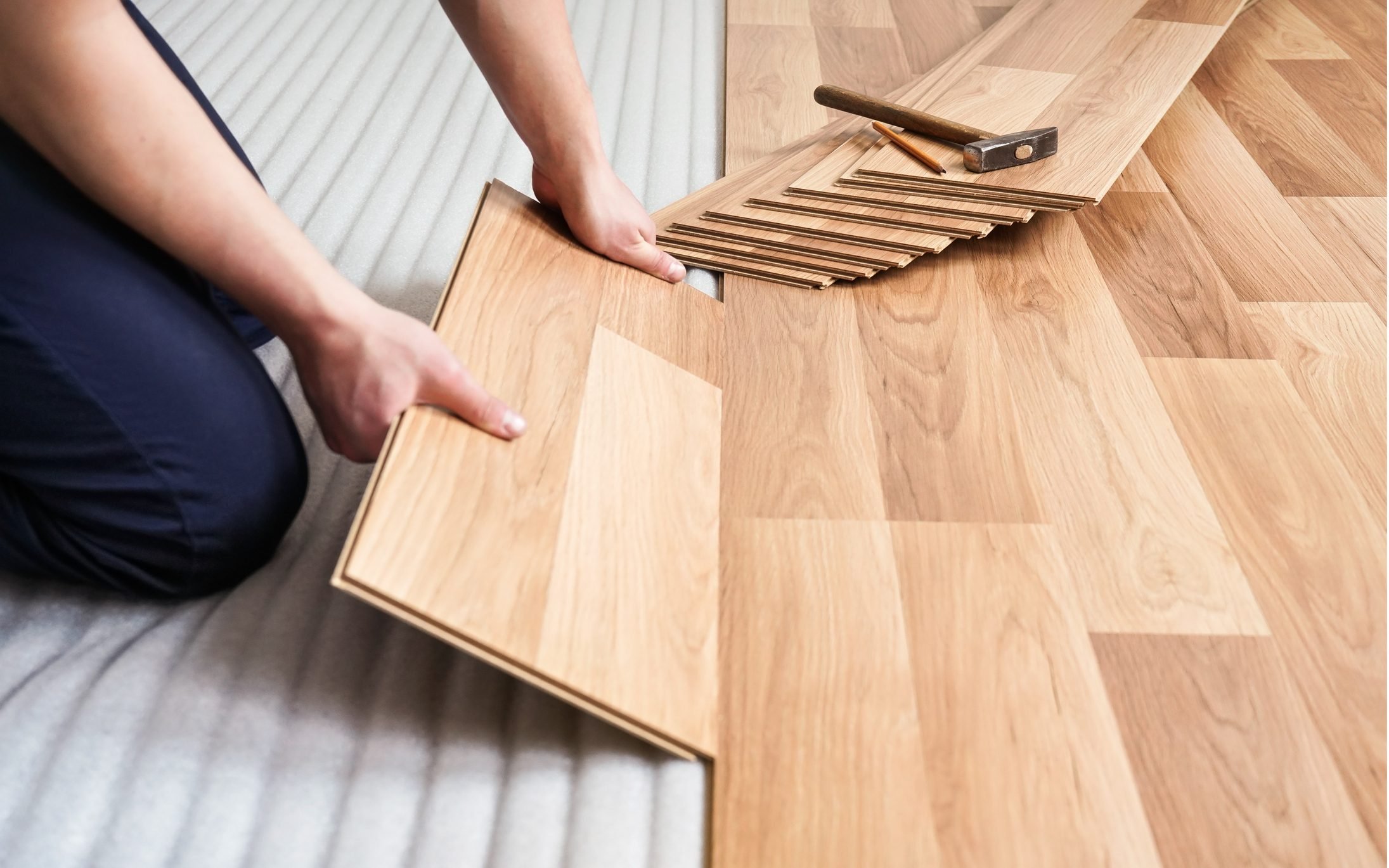Choosing the right flooring for your home can feel like a daunting task. With so many options available, it’s easy to get overwhelmed. Two popular contenders often top the list: laminate and vinyl flooring. Both offer attractive aesthetics and practical benefits, but understanding their key differences is crucial for making an informed decision. This article will delve into the world of laminate and vinyl flooring, exploring their pros and cons, installation nuances, and ultimately helping you determine which best suits your needs and preferences.

Image: viewfloor.co
The decision between laminate and vinyl flooring comes down to a careful balance of factors, such as your budget, style preferences, and desired level of durability. Laminate, known for its wood-like appearance and affordability, often appeals to those seeking a classic look at a reasonable cost. Vinyl, on the other hand, boasts a wide range of styles, including realistic wood-look patterns and even intricate tile designs, offering more versatility in terms of aesthetics. This article will guide you through these options, helping you make a confident choice for your home.
Understanding Laminate Flooring
What is Laminate Flooring?
Laminate flooring is a synthetic flooring option that imitates the look and feel of natural materials like wood or stone. It consists of multiple layers pressed together, including a wear layer for durability, a decorative layer that provides the desired aesthetic, and a core layer for stability.
Pros of Laminate Flooring
- Affordable: Laminate flooring generally costs less than real hardwood or tile, making it a budget-friendly option.
- Durable: The wear layer on laminate flooring is resistant to scratches, dents, and fading, making it suitable for high-traffic areas.
- Easy to Install: Laminate flooring often comes with a click-lock system, allowing for quick and relatively simple installation.
- Low Maintenance: Laminate flooring is easy to clean and doesn’t require special care like sealing or waxing.
- Water-Resistant Options: While not completely waterproof, some laminate flooring options offer water resistance, making them suitable for areas like kitchens or bathrooms.

Image: viewfloor.co
Cons of Laminate Flooring
- Not as Authentic: Laminate flooring doesn’t have the warmth or natural variations of real hardwood.
- Can’t be Refinished: Unlike real hardwood, laminate flooring cannot be refinished once the wear layer is damaged.
- Less Impact-Resistant: Compared to vinyl flooring, laminate can be more susceptible to impact damage.
- Can’t be Fully Submerged in Water: While some laminate options offer water resistance, prolonged water exposure can damage the flooring.
Understanding Vinyl Flooring
What is Vinyl Flooring?
Vinyl flooring is a versatile flooring option made from polyvinyl chloride (PVC), known for its durability and water resistance. It comes in various styles, including planks that mimic wood, tiles that resemble stone, and even patterned designs for a unique look.
Pros of Vinyl Flooring
- Water-Resistant: Vinyl flooring is highly water-resistant, making it ideal for kitchens, bathrooms, and other areas prone to spills.
- Durable: Vinyl flooring is known for its resilience to scratches, dents, and fading, making it suitable for high-traffic areas.
- Comfortable: Vinyl flooring tends to be softer underfoot than laminate, providing comfort and noise reduction.
- Easy to Clean: Vinyl flooring is easy to clean and maintain, often requiring just sweeping or mopping.
- Wide Range of Styles: Vinyl flooring offers an extensive selection of styles, from realistic wood-look planks to intricate tile patterns.
Cons of Vinyl Flooring
- Can Feel Less Authentic: Some vinyl flooring options, especially those mimicking natural materials, may lack the authenticity of real hardwood or stone.
- Can Be More Expensive: Depending on the type and quality, vinyl flooring can be more expensive than laminate flooring.
- Less Durable on High-Traffic Areas: While durable, some vinyl flooring types may show wear and tear in extremely high-traffic areas.
- Susceptible to Sun Damage: Certain vinyl flooring types can fade or change color when exposed to prolonged sunlight.
Laminate vs. Vinyl: A Closer Look
Installation
Both laminate and vinyl flooring offer relatively easy installation. Laminate flooring is often installed using a click-lock system, while vinyl flooring may involve adhesive or a click-lock system depending on the type.
Cost
Generally, laminate flooring is more affordable than vinyl flooring. However, the cost of both can vary significantly based on factors like quality, style, and brand.
Durability
Both laminate and vinyl flooring are considered durable, but they differ in how they handle specific types of wear. Laminate flooring is generally more resistant to scratches and dents, while vinyl flooring tends to be more water-resistant.
Appearance
Laminate flooring primarily aims to replicate the appearance of wood, while vinyl flooring offers a wider range of styles, including realistic wood-look patterns, intricate tile designs, and even abstract patterns.
Choosing the Right Flooring for You
The best flooring option for you depends on your unique needs and preferences. Consider factors such as:
- Budget: Laminate flooring is generally more affordable than vinyl flooring.
- Style: Vinyl flooring offers a wider range of styles and patterns, while laminate flooring mainly focuses on wood-like aesthetics.
- Durability: Laminate flooring is more scratch and dent resistant, while vinyl flooring is more water-resistant.
- Traffic Levels: Laminate flooring is more durable in high-traffic areas, while some vinyl flooring options can show wear and tear.
- Water Resistance: Vinyl is highly water-resistant, making it ideal for kitchens and bathrooms. Some laminate options also offer water resistance, but not to the same degree.
Difference Between Laminate Flooring And Vinyl Flooring
Conclusion
Choosing between laminate and vinyl flooring comes down to a personalized assessment of your priorities. Both have their strengths and weaknesses. Laminate flooring is a budget-friendly option that mimics wood well, while vinyl flooring offers greater style versatility and water resistance. Regardless of your choice, ensure to research reputable brands and seek expert advice for professional installation to maximize the longevity and beauty of your new flooring.



/GettyImages-173599369-58ad68f83df78c345b829dfc.jpg?w=740&resize=740,414&ssl=1)


